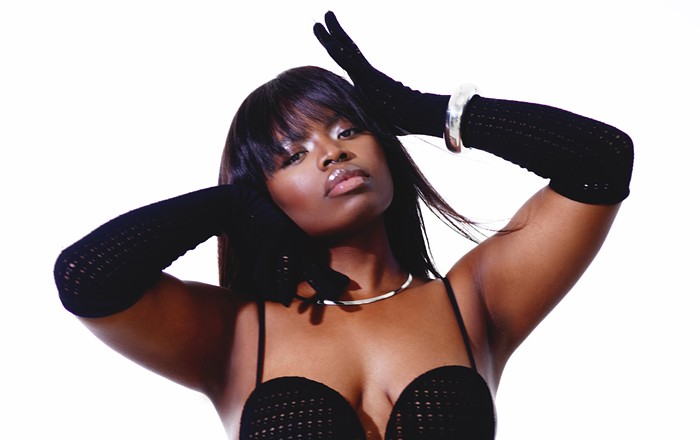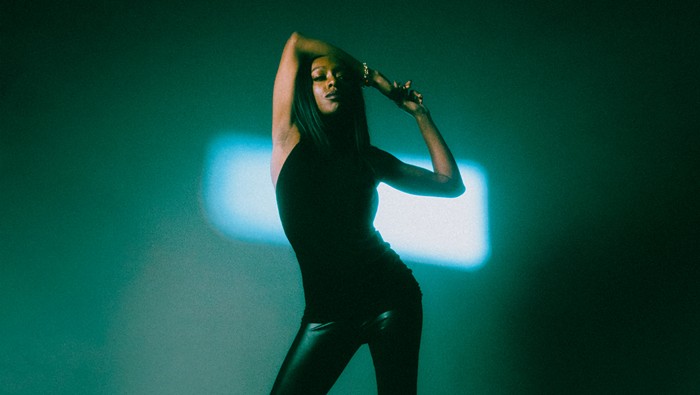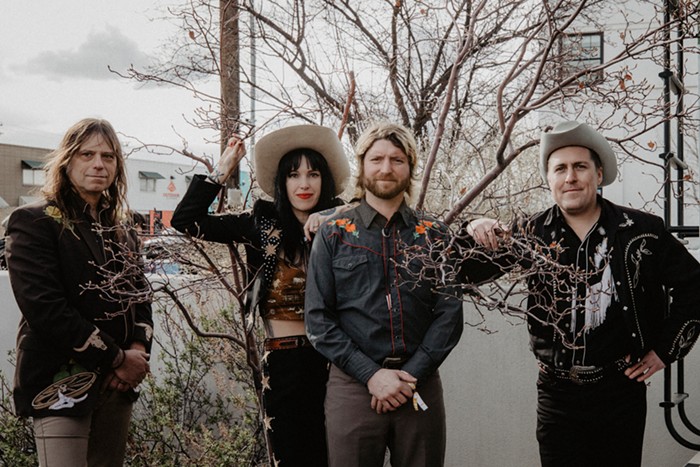BEFORE ELLY JACKSON became a chart-topping synth-pop star in her native England she was a finger-picking folkie with a taste for Nick Drake and Joni Mitchell. The change happened instantly in a tale as old as the sequencer: A contrarian's mind, cursed with thoughts too delicate to withstand the earnestness of rock, finds release at the push of a button. This is the oft-told story of New Order, of Gary Numan, even of Berlin-huddled, drug-addled David Bowie. It's also La Roux's story.
"I started mucking about one afternoon at a mate's house," Jackson told a Nottingham paper last year. "He got me to play guitar on someone's track and he said, 'Do you wanna start making a tune, just for fun?' Then he gave me a synth and he was like, 'Do you wanna put some chords down on this?' And then I was like, fucking hell, this is amazing!"
An about-face? Hardly. The songs on last year's self-titled debut bear traces of the melancholy folk that beckoned the teenaged Jackson. Sure, UK #1 "Bulletproof" flashes a Lady Gaga-like trash-synth groove. But would Gaga undercut her pose with a wistful chorus, which, in a different context could be heard as a naked ballad?
La Roux started in 2006, when Jackson met Ben Langmaid, her production partner. In the duo, Langmaid plays a role established by Giorgio Moroder on Donna Summer's '70s masterpieces and taken up in recent years by Will Gregory of Goldfrapp: He's the tech-savvy boffin-cum-servant to a white-hot voice and (fans are free to imagine) muse. By the time the duo's debut single appeared in late 2008, they had been tipped along with Little Boots and Florence and the Machine among a wave of avant-pop outfits.
But La Roux means more to British pop than that. Jackson represents the first generation to see synthesizers as neither the future, as synth-pop's pioneers did, nor as the past, like the Brit-poppers of the '90s. To Jackson, the synth is just another songwriting tool. Welcome to the 21st century.



















